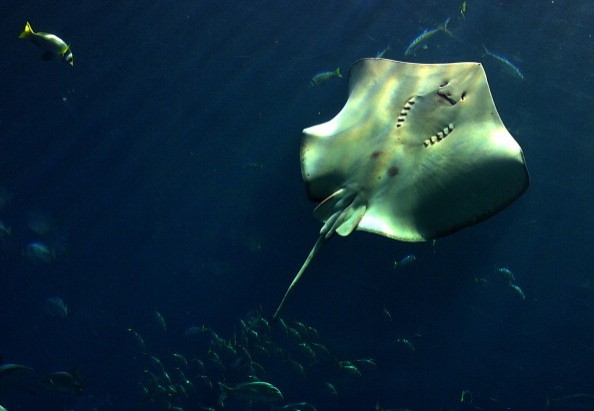As per an eight-year scientific study, overfishing is making a third of shark and ray species susceptible to extinction.
Prof Nicholas Dulvy, of Canada's Simon Fraser University who is the lead author of the paper, said: "Sharks and rays are the canary in the coalmine of overfishing. If I tell you that three-quarters of tropical and subtropical coastal species are threatened, just imagine a David Attenborough series with 75% of its predators gone. If sharks are declining, there's a serious problem with fishing."

The previous co-chair of the shark specialist group of the International Union for Conservation of Nature (IUCN) whose name is Dulvy said the health of the whole ocean ecosystems and food security was in danger.
The number of sharks, chimaeras, and rays species which are all referred to as chondrichthyan fishes, experiencing "a global extinction crisis" in less than a decade has more than doubled, as per the paper released on the 6th of September in the journal Current Biology.
Threatened Species
The most threatened among them is Rays and 41% out of 611 species that were studied are at risk; for sharks species, 36% of 536 are at risk; and for chimaera species, 9% of 52 are at risk.
Dulvy said the study discloses a rising grim reality. Presently, these species make up one of the most threatened lineages of vertebrates followed by the amphibians in the risks they are undergoing.
He said: "The widespread depletion of these fishes, particularly sharks and rays, jeopardises the health of entire ocean ecosystems and food security for many nations around the globe."
The analysis is the second to be conducted since 2014 and it follows a study in January that discovered the population of shark and ray had decreased by over 70% in the past 50 years, with formerly widespread species like hammerhead sharks experiencing extinction.

Overfishing
Sharks, chimaeras, and rays are susceptible to excess fishing and this is because they grow gradually and give rise to a few offspring. It has been roughly calculated that humans kill 100 million sharks yearly, completely defeating their slow reproductive capacity.
The major threat to chondrichthyans was industrial fishing, either solely or joining with other fisheries, the authors said.
The report said most of the sharks and rays are not taken on purpose, but maybe the "unauthorized target" in most fisheries, and are kept for food and animal feed. The authors said the loss of habitat and degradation, pollution and the climate crisis aggravates overfishing.
The experts discovered that in tropical and subtropical waters, the species are threatened out of proportion mostly off countries like Indonesia and India, due to very high demand from great coastal populations coupled with mostly uncontrollable fisheries, usually prompted by demand for higher value products like fins.
For more news, updates about fishes and similar topics don't forget to follow Nature World News!
© 2025 NatureWorldNews.com All rights reserved. Do not reproduce without permission.





